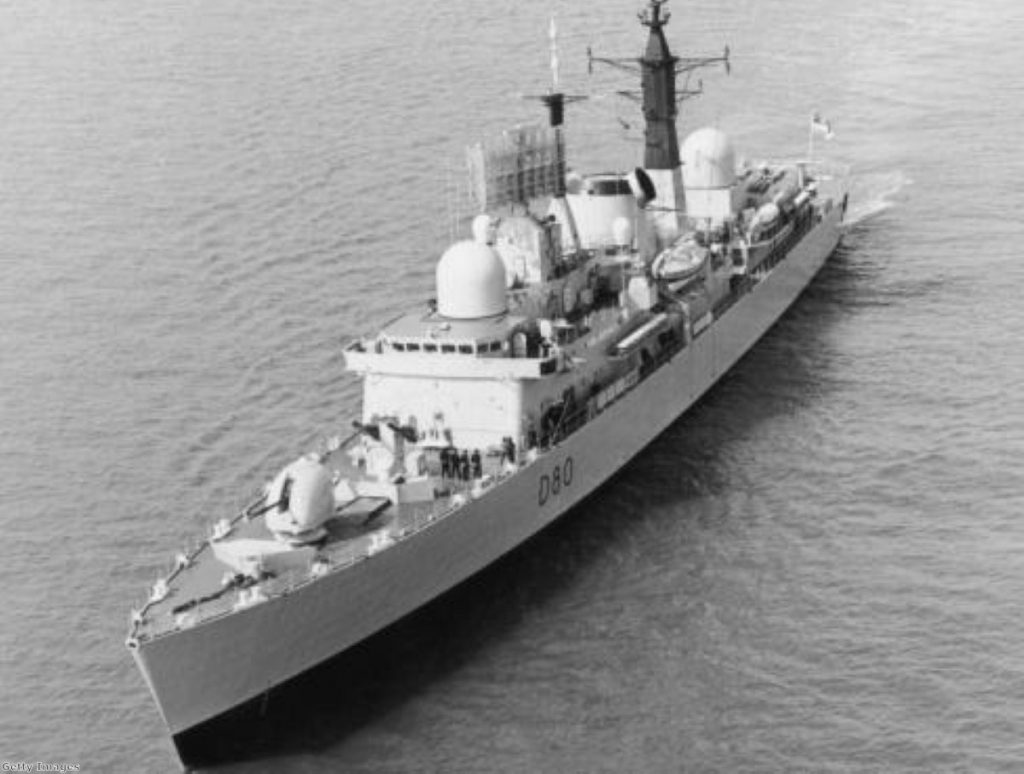The James Bond solution: Thatcher advised on Falklands Exocet sabotage
Margaret Thatcher's senior legal adviser suggested a "James Bond" solution to the threat posed by French-supplied Exocet missiles during the 1982 Falklands War, it has emerged.
Documents released under the 30-year rule reveal attorney-general Sir Michael Havers suggested dispatching a British secret agent to ensure a plane-load of Exocets would not reach Argentine military forces.
Britain faced its severest threat in the Falklands from Exocet missile strikes, which sank the Type-42 destroyer HMS Sheffield and the Atlantic Conveyor.
France was offering only limited help to the UK. Its decision to delay the delivery of more Exocet missiles was damaging its trade prospects for other Latin American states, president Francois Mitterand explained.


This was the moment when Havers' memorandum proposed attempting to intervene directly. His plan involved using connections in the air freight industry to penetrate whichever air freight company was used for the job and diverting it to a British-controlled airstrip.
"This will cost money (this is an expensive and dirty business) but would, in my view, be cheap at the price," Havers wrote in a letter to the prime minister. He argued the UK would be able to deny the operation entirely and stressed that Britain needed to consider inventive ideas – "even the most way-out which may be thought to be more appropriate to a James Bond movie".
Thatcher simply scribbled on Havers' hand-written memo: "Can we have a word?"
Mitterand eventually backed down, agreeing not to continue supplying Exocets to Latin American states for "political reasons".
The documents released today also show Thatcher was concerned by Gibraltar's security during the Falklands War.
The prime minister ordered reinforcements to British military forces guarding the Rock to cover a possible attack from Spanish naval exercises taking place just 35 miles away.
British defence officials assessed the possibility of a military attack as slight, but Thatcher remained concerned.
Her steadfast determination to complete victory in the Falklands has also been underlined by today's news, which showed she rejected a request from US president Ronald Reagan to make peace with Argentina as the conflict entered its final stages.
He had proposed using Britain's strong military position to make a peace on advantageous terms to the UK, but Thatcher rejected his arguments entirely.
"Britain had not lost precious lives in battle and sent an enormous task force to hand over the Queen's islands to a contact group," the official note from No 10 stated.
"As Britain had had to go into the islands alone, with no outside help, she could not now let the invader gain from his aggression. The prime minister asked the president to put himself in her position.
"She had lost valuable British ships and invaluable British lives. She was sure that the president would act in the same way if Alaska had been similarly threatened."
Papers released at the National Archives in Kew showed Thatcher also briefly considered pulling England, Scotland and Northern Ireland out of the 1982 World Cup.
Some officials argued the "revulsion" felt by some players at competing alongside the Argentine side should be respected, but the view of those who believed a British withdrawal would be used as a propaganda opportunity by Buenos Aires prevailed.












